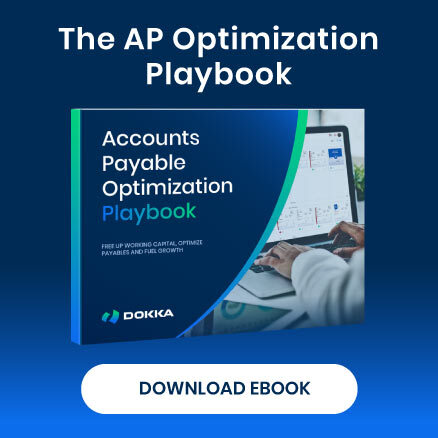These days, it seems like AI is everywhere around us.
Companies from all industries and sizes are increasingly curious to know how to harness the power of AI to transform their operations and increase efficiency.
CFOs have found themselves at the forefront of embracing new AI technologies, often playing a significant role in digital transformation. They recognize its potential to streamline processes, improve accuracy, and reduce costs.
However, only 42% of CFOs say their company is experimenting with AI technology. So why does the majority still hesitate?
Implementing AI requires significant investments in terms of time and resources, along with a cultural shift within the organization to fully embrace this new technology and integrate it into daily operations. On top of that, CFOs may also have concerns about potential security risks, data privacy, and cost-effectiveness.
What are their views on the integration of AI technologies into their companies, and what factors shape their decisions?
To shed light on these questions, we turn to the findings of two significant surveys conducted this summer by Deloitte and StrategicCFO360. These latest reports provide valuable insights into how top CFOs from North America perceive AI’s impact on their organizations, what challenges they foresee, and where they see opportunities for leveraging this technology.
AI’s Significance in the Eyes of CFOs
The potential impact of emerging technologies such as generative AI, machine learning, and natural language processing has ignited discussions among CFOs. These innovative tools hold the promise of reshaping financial operations, yet, when questioned about their perceived importance, CFOs appear to be divided.
In a survey conducted by StrategicCFO360, 170 CFOs participated in evaluating the significance of digital and emerging technologies within their company’s financial strategy. Utilizing a scale that ranged from 1 (irrelevant) to 5 (critical), a notable 22% of the surveyed CFOs rated these technologies as “critical” (scoring a 5 out of 5) in their financial strategy. This faction firmly believes that AI and its counterparts possess the potential to revolutionize their approach to finance.
Conversely, a mere 2% of respondents regarded them as “irrelevant” to their financial strategies, signifying a distinctly contrasting perspective.

Interestingly, Deloitte’s survey, which was conducted on a slightly smaller sample of 115 CFOs, has yielded similar results, with 24% of them deeming AI as important or very important to their overall business strategy.
It’s worth noting that a substantial segment of the surveyed CFOs, approximately 42%, belongs to the category of those who do not consider AI as important. This indecision implies that a significant portion of finance leaders has yet to establish a firm stance on the significance of these technologies in shaping their organization’s strategy.
Around 17% of CFOs remain in the “too soon to tell” category, indicating their uncertainty about where their organizations stand in their AI journey. These CFOs adopt a cautious approach, waiting for further evidence of the technology’s effectiveness and observing how the competition responds before fully embracing it.
A promising development is that nearly one-quarter of the CFOs have disclosed that their organizations are actively involved in discussions and exploration of these emerging technologies. This highlights a growing interest in incorporating AI into their financial strategies.
Top Concerns of CFOs Regarding AI
What’s holding them back?
According to Deloitte, the primary concerns and barriers that CFOs face in adopting AI include understanding how it operates and integrating it into their existing systems. This demands a specific level of technical knowledge and expertise, which may be deficient within finance departments. Furthermore, concerns revolve around data privacy and security, as well as the associated costs and infrastructure resources.
- Obtaining Talent Resources and Capabilities
One of the primary challenges that CFOs encounter when considering AI adoption is acquiring the necessary talent resources and capabilities. A significant 63% of surveyed CFOs point to this as their primary concern. The shortage of skilled professionals who can harness the power of AI is a pervasive issue, and CFOs must navigate this talent deficit to effectively leverage AI’s potential.
- Data and Technology Resources
Integrating AI into financial strategies is inherently linked to data and technology resources. Almost half of the surveyed CFOs (49%) express concerns about the resources AI might require, such as data infrastructure and technology. Since AI systems heavily depend on data, ensuring that an organization’s data infrastructure is robust and capable is of paramount importance.
- Risk and Governance Concerns
Sustaining risk management and governance standards remains a top priority for CFOs, and this becomes a pivotal concern when integrating AI into financial processes. 45% of surveyed CFOs express apprehensions about the risk and governance implications linked to AI adoption. Striking a balance between innovation and compliance is a complex challenge that demands careful navigation.

- Competing Priorities
In the dynamic landscape of finance, CFOs frequently find themselves contending with competing priorities. 42% of those surveyed highlight the challenge of integrating AI while concurrently managing other crucial business objectives. Prioritization emerges as a key concern in the strategic adoption of AI technologies.
- Privacy and Security Issues
Data privacy and security have garnered significant attention in recent times, and CFOs are no exception to these concerns. 37% of surveyed CFOs express apprehension regarding the implications of AI on privacy and security, particularly as these technologies interact with sensitive financial information.
- Cost of Investment
Implementing AI technologies is not without cost. Approximately 30% of surveyed CFOs express concerns about the investment requirements associated with adopting and deploying AI. Balancing the potential returns of AI with the financial commitment required is a central consideration.
- Stakeholder Buy-In
Stakeholder buy-in, while not the primary concern for most CFOs, remains an important factor. 19% of those surveyed acknowledge the challenge of securing support and commitment from key stakeholders within their organizations.
How CFOs See The Use of AI in Finance?
In spite of the challenges, CFOs maintain a positive outlook regarding the potential benefits of AI for their department.
In fact, an overwhelming 81% of those surveyed by StrategicCFO360 express a high level of confidence in the capacity of digital technologies, with AI taking the forefront, to automate resource-intensive tasks. The automation of routine and time-consuming activities holds significant promise, enabling financial professionals to redirect their focus toward more strategic and value-added tasks.
70% of respondents emphasize the potential for AI to mitigate data duplication and streamline reconciliation efforts. By optimizing data management, AI has the potential to contribute to a more precise and efficient financial ecosystem.
Efficient planning, budgeting, and reporting form the cornerstone of sound financial management, and 69% of CFOs acknowledge AI’s potential to facilitate the seamless integration of these critical functions.

Enhancing Planning, Forecasting, and Analysis
Deloitte’s survey underscores the significant role of AI in improving planning, forecasting, and analysis activities. Nearly half of the surveyed CFOs (49%) view this as the most promising application of AI in finance. AI’s predictive capabilities and data analysis proficiency can empower CFOs to make more informed and strategic decisions, ultimately optimizing financial performance.
Automating Routine and Transactional Processes
The theme of automation remains central, with 26% of CFOs recognizing AI’s potential to automate routine and transactional processes. This enhancement in efficiency can liberate time for finance professionals, allowing them to concentrate on more value-added tasks, thereby boosting productivity and reducing operational costs.
Increasing Efficiency and Cost Reduction
20% of surveyed CFOs foresee AI playing a pivotal role in enhancing efficiency and reducing costs. Through the streamlining of processes, improvement in data accuracy, and the automation of tasks, AI has the potential to create a leaner and more cost-effective finance function.
Improved Decision Making and Insights
AI’s capacity to furnish data-driven insights and enhance decision-making is recognized by 18% of respondents. AI-generated insights provide CFOs with the means to make more informed choices, mitigating risks, and optimizing financial strategies.
Accounting, Reporting, and Reconciliation
While not the primary focus, 12% of CFOs acknowledge the potential of AI in tasks related to accounting, reporting, and reconciliation. Automation and enhanced accuracy in these areas can bolster financial transparency and compliance.
Internal Audit and Controls
Internal audit and controls also find a place within the AI landscape, with 5% of respondents highlighting its potential. AI-driven auditing has the capacity to enhance accuracy and pinpoint areas warranting scrutiny, thereby contributing to improved risk management.
Customer Support and Beyond
Additionally, some CFOs envision AI playing a role in customer support, accounts payable, comparative analysis, expediting monthly close, forecasting, modeling improvements and more.
A Growing Commitment to Digital Transformation: CFOs’ Investment in AI
According to StrategicCFO360, 59% of CFOs reported an increase in their allocation of capital to digital transformation efforts for the year 2023 compared to the previous year. What’s even more telling is that 65% of these financial leaders anticipate further increases in their capital allocation for digital transformation as they look ahead to 2024.

Deloitte’s survey provides further insights into how CFOs plan to allocate budget and resources specifically for AI initiatives. It is important to mention that the vast majority of surveyed CFOs are from companies with more than $1 billion in annual revenue.
The data reveals varying degrees of commitment across organizations:
- Less than 1% allocation: Almost two-thirds (65%) of surveyed CFOs expect that less than 1% of their organizations’ budget and resources will be earmarked for AI in the upcoming year.
- 1% to 5% allocation: Nearly one-third of CFOs (33%) anticipate their organizations will allocate between 1% and 5% of the budget to AI.
- 5% to 10% allocation: A smaller proportion of CFOs (3%) have a bolder vision, expecting their organizations to dedicate between 5% and 10% of the budget. This group is willing to make a more substantial investment in AI technologies.
- 10% to 25% allocation: A minority of CFOs (1%) envision a significant commitment, with their organizations allocating between 10% and 25% of the resources to AI. This segment reflects the most substantial endorsement of AI among the surveyed CFOs.
The allocation of resources for AI varies not only by the level of commitment but also by company size, with the larger organizations demonstrating a greater willingness to invest in AI.

In summary, CFOs are at the forefront of the AI revolution in the financial sector. While challenges and concerns persist, their optimism and growing investment in AI signify a recognition of the transformative potential of this technology in shaping the future of finance.
As AI continues to evolve, CFOs will play a pivotal role in harnessing its power and driving financial innovation in the years to come. Therefore, it is crucial for CFOs to stay informed and continuously assess their organizations’ readiness to embrace AI.
As the saying goes, “The best way to predict the future is to create it.” By leveraging AI’s capabilities in planning, forecasting, automation, and decision-making, CFOs can steer their organizations towards a more efficient and data-driven future.
For the 17% of finance leaders who still need more information about AI technology and digital transformation, here are some useful resources to learn from:
- DOKKA Academy – Empowering Financial Controllers and CFOs in the Era of Autonomous Accounting
- 7 Trends That Will Catapult AP Into a Fully Autonomous Future
- What Is Accounts Payable Automation?
- 16 Key Benefits of Accounts Payable (AP) Automation
- Case studies – See how finance teams use DOKKA to eliminate manual work, save time and build scalable companies.
- Free Download – AP Optimization Playbook




